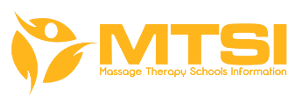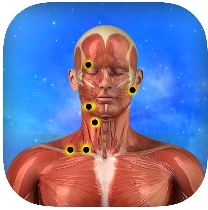
I own my practice, in Hamilton ON as a solo RMT. It is a clinically minded practice where I treat predominantly chronic pain. I recently opened a second location in Burlington, with my partner who is an Osteopath.
2. Tell us why you chose to go into massage and at what point in your life did you decide to do so? What were you doing at the time? Where did you first hear about the massage career? What factors influenced your decision? What were you looking to get out of this decision?
At the time of deciding to return to school, I worked in retail and had been at that particular job for many years. I’d thought, I can just finish high school and get a job and that will be fine. I was wrong. The low pay and uninspired work left me feeling bored and frustrated.
I had thought about being an RMT since I was very young and decided to go to college to study. I wanted to put my skills as a problem solver and one-to-one people person to good use. I was also interested in being a part of improving the quality of life for those who were struggling with daily pain. What I wanted to get from my career is personal satisfaction; a sense of fulfillment.
3. What were some of your questions and concerns before further pursuing your massage therapy goals? Talk about concerns with school and the profession itself.
My primary concern was financing. I had been living on my own for 4 years, had no savings, a very low paying job and limited resources from family supports. I had no concerns about the program – I expected it to be science based and so, very challenging. But I had no doubt in my mind I would complete the program as it was what I wanted.
A certain grim determination, and OSAP, saw me through. I worked part time as well, so it was a bit of a challenge attending to all my homework. I had no concerns about the profession – to be honest, I hadn’t really even thought that far ahead. I was entirely focused on completing the program.
4. What is your specialty and what are the top three contributing factors to your success today?
I suppose my specialty is “mystery pain” the Doctors have a hard time diagnosing, in addition to general chronic pain from past injuries or repetitive injuries. Top 3 contributing factors to my success in this area: compassion – I can see a person who is emotionally distraught due to their pain and just receive them for who and where they are, right now.
Determination: having very little business background, getting my own practice up and running, learning how to build a website and make it find-able, as well as being able to deal with stubborn patient cases requires a lot of determination. One will fail, sometimes repeatedly, before one finds the right approach. Optimism: because of that whole failing thing. I had to be able to keep seeing the goal, and believing that i could reach it.
5. What do you like about your specialty? What do you like about what you do in general as a career? Why?
My specialty kinda just happened – the majority of the people I was seeing were chronic pain cases or mystery pain. What I like about them is the challenge and the look of relief and wonderment on the faces of my patients.
The most satisfying thing anyone has ever said to me was “I feel like you really listen to me and pay attention to my body and what it is trying to say.” Too often these two things are neglected by the current medical system, so being able to provide that makes me very happy.
6. What do you not like about what you do? Why?
In general, the thing I like the most about my career is the autonomy. I was not a good employee – I need a lot of responsibility and really big, important tasks to keep me satisfied at work.
“Busy work” makes me miserable. With this, I am holding all the reins and am responsible for everything. It can be a bit overwhelming but I love it for the challenge and the satisfaction of getting the job done.
7. If there were three things you could change about your work or the industry as a whole what would they be? Why would you change them? What would you change them to?
I would love to see massage therapy become much more widely recognized as a medically valid practice. RMTs tend to be viewed as “service providers” by the medical professions as a whole. They neglect to realize that we are often correcting a lot of what they do not see, assisting them in preventing the need for costly and invasive surgeries, and help their patients get better faster post surgery.
I think the level of education we receive could be increased as well to include far more indepth discussion about the relationships between anatomy, physiology and pathology with a greater effort to ensure that graduating students are proficient in understanding and applying these concepts in the real world.
8. How long do you plan to practice and what do you plan to do after?
I plan to practice for as long as I can and when I decide to retire, I may choose to oversee a clinic or maybe just travel. We will see when we get there.
9. Do you currently have another job or business whether full time or part time? Tell us a bit more about it and how you are able to juggle that with your massage career?
No other job.
10. What are some mistakes you made in your career pursuit that you’d like to warn other students about so they can learn from your experience and avoid it?
The first mistake I made was to join a practice that did not suit me. While it’s obvious they want to interview you, you should have some idea of what kind of work environment you want to be in and have some questions ready for them.
11. What would you advice someone who is looking at massage therapy schools? What do you recommend they look for and how? How do you recommend they determine whether the school is the right one for them?
First, I would stress that you are certain you want this career path. Consider that you will potentially be working on people you do not find attractive, and you will be touching their bodies. Many people fail to consider this – surprisingly – and seem to assume that we are always massaging models.
That’s rather rare, and even if you do find yourself in that situation, you must maintain a firm boundary of professionalism. As for choosing a school, if you are lucky enough to have options for that, I would spend as much time as you can with the actual teachers and perhaps even the principal to get a feel for the philosophy of the school. If you do not have that option, then prepare for a science heavy education.
12. What do you recommend for someone who wants to go to massage school but cannot afford it?
I could not afford massage school so I took out OSAP. Depending on the school you go to, you may be able to find scholariships. OSAP made this all very possible, and they have been very good about my repayment schedule.
13. What are your three biggest points of advice for an aspiring massage therapist today? What should they do/not do? What should they think about and consider?
Know your anatomy/physiology/pathology if you want to actually fix people. Don’t worry so much about “technique” since it’s not the technique that fixes a person but the reasoning and understanding behind the technique. If you plan to go into business for yourself learn some stuff about how that works – primarily marketing and start up cost analysis.
Learn a thing or two about leverage – too many RMTs rely on muscle strength alone and forget about their own ergonomic working posture. If you intend to have a long career, leverage and ergonomics will be what ensures that. Consider other professionals as part of a team you are a player on.
Too often we get caught up in competitive attitudes and see other professionals as opponents. This is not so – find other professionals who have the same kinds of values and ethical systems as you do and connect with them, not just for the referral chain, but for the support when you encounter difficult to treat cases.
14. Any open thoughts / comments – anything else that you’d like to share about yourself, the massage industry, profession, future, etc? If nothing, make one prediction for the future of massage?
An optimistic prediction: RMTs will become HST exempt, recognized in the medical community and covered by OHIP.
15. What is your passion outside of massage? What are your hobbies and interests which you pursue when you are not working? Tell us why you enjoy what you enjoy.
Outside of massage I enjoy crocheting, knitting, rock climbing, cycling, hiking, playing with my cats, reading, surfing the internet, bird watching, writing poetry and… That’s about all I have room for in my schedule 🙂
Jen Fleming RMT can be reached on her website here. You can also connect with her on Facebook here.








Leave a Reply